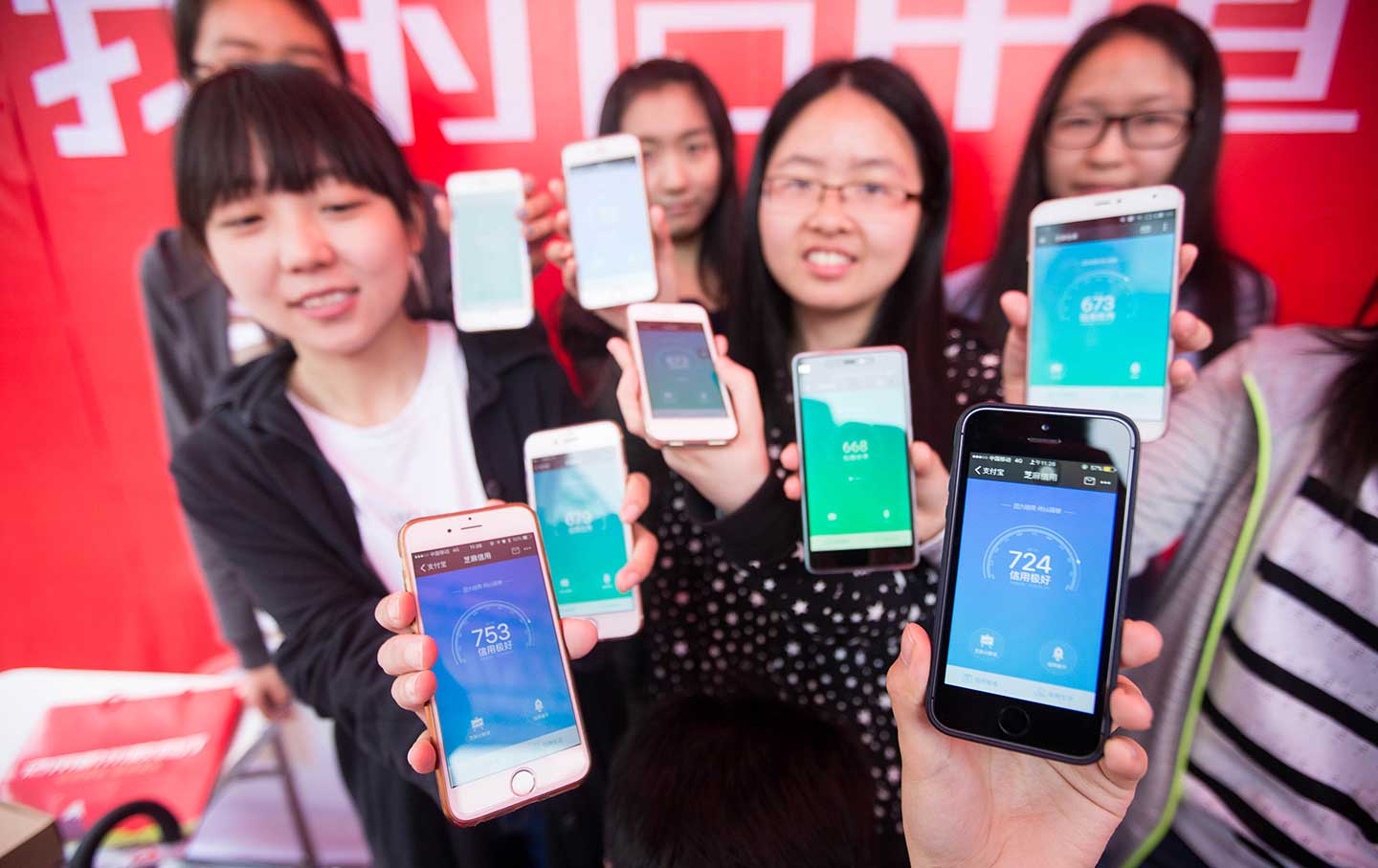Chinese courts have put on social-credit punishment list about 13.5 million people deemed untrustworthy
People deemed untrustworthy in China have been blocked from the purchase of more than 25 million plane and train tickets, as the country works to build a social-credit system designed to monitor and shape the conduct of its citizens.
Chinese courts have now added 13.5 million entries to a list of dishonest persons subject to enforcement, as authorities improve their ability to collect and share information, according to new statistics unveiled on Thursday by the National Development and Reform Commission.
By the end of March, people deemed untrustworthy had been blocked from buying 20.47 million air tickets and another 5.71 million high-speed rail tickets, the government said.
The release of statistics comes as China works to set in place a social-credit system intended to assess citizens’ reliability and ultimately to govern their ability to participate in a wide range of activities, such as exporting goods, accessing government contracts, converting currency and receiving Communist Party promotions. That system is intended to govern “19 key areas of dishonesty,” including spreading online rumours and false information, committing financial fraud, delivering unlicensed medical treatment, evading taxes, cheating on tests and fixing sports matches.
Critics have raised alarm about the construction of a “digital panopticon” that leverages the power and rising technological sophistication of the world’s largest authoritarian regime to monitor its people for compliance to government dictates in ways never before possible.
But some Chinese scholars and officials have defended establishment of the system as a necessary corrective in a society tainted by poisoned-milk scandals and financial frauds – one that will reward good conduct and ease life for those with integrity, even as it deprives the unreliable of privileges.
Chinese authorities have pledged to set the social-credit scheme in place by 2020, although the system is “an umbrella for a bunch of different policies and blacklists” said Shazeda Ahmed, a PhD student at the University of California, Berkeley, who studies co-operation between the Chinese government and technology companies in developing credit systems.
“One of the big misconceptions people have is there’s one big blacklist,” she said. Instead, various industries and governments have created their own lists.
But much remains unknown. Take the people barred from buying air and rail tickets. Yuan Da, spokesman for the National Development and Reform Commission, did not specify over what period of time those statistics were gathered, according to a state media report. Nor is it clear even how many people remain on blacklists. The number of people deemed dishonest – 13.5-million – is counted in “person-times,” which could double-count people sentenced multiple times. Mr. Yuan said some 3.9 million untrustworthy people have “fulfilled their legal obligations,” state media reported.
By the end of March, China’s national credit information-sharing platform had gathered more than 32 billion pieces of credit information – although what constitutes a piece of information was also not defined.
And Ms. Ahmed counselled caution in approaching the statistics published by Chinese authorities as they seek to establish a system that is a major government priority.
Publishing substantial figures can “show people who think it’s unfair that people go unpunished that, ‘Look we’re doing something,’” she said. It can also “deter people who might do those things again: ’Look, millions of you are getting caught.’”
Still, the statistics underscore the determination China is showing to ensure that social credit becomes a reality.
A “joint discipline scheme” is now largely operational as establishment of the system “nears the middle point of the whole process,” said Lin Junyue, an academic sometimes called the founder of China’s social-credit theory, which he has studied since the mid-1990s.
The discipline of people deemed dishonest, through the denial of certain buying privileges, is effectively “the first step of the construction of social credit,” he said.

Many of those currently under disciplinary measures have been placed on a judgment defaulter blacklist for failing to make good on court-ordered payments. In a country without statutes for individual bankruptcy, it makes sense to bar people who owe money from certain purchases, Dr. Lin said.
“It might look like the government is restricting people from taking planes or high-speed trains. But its intent is actually to prohibit them from a high level of consumption,” he said.
In total, the number of blacklists in China now likely numbers in the hundreds, said Dai Xin, a professor at Ocean University of China School of Law. But it remains experimental, he said, like many initiatives in China, where “governments just go ahead with some vague assumptions of what may happen if a measure is adopted.”
And the revelation of statistics does little to answer questions about the effectiveness of the burgeoning social credit system.
“The purpose indeed is to demonstrate that the system has been put to real use, in particular in the sense of imposing sanctions or incentives on those targeted entities,” Prof. Dai said. “What these disclosures do not really say or are unable to validate, obviously, is the causal effect between such use of the system and any claimed result that behaviours have changed.“
With reports from Alexandra Li
/arc-anglerfish-tgam-prod-tgam.s3.amazonaws.com/public/EDBMAKJIWJDLLOQXPQOIS7YJK4.jpg)
No comments:
Post a Comment
Comments always welcome!